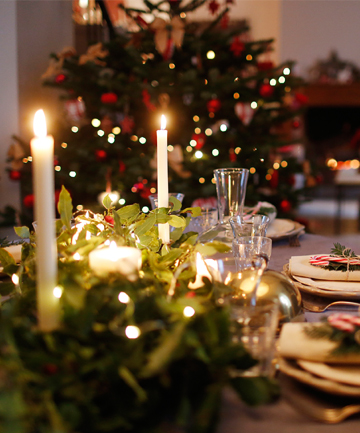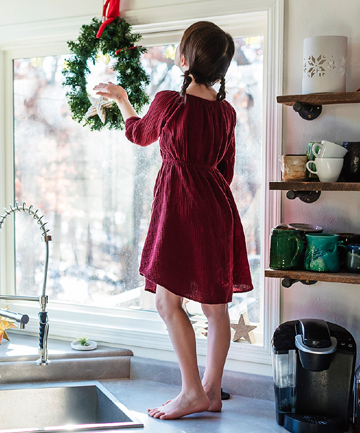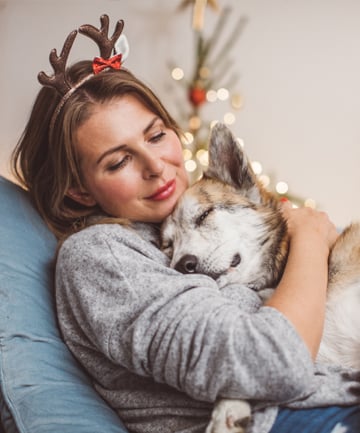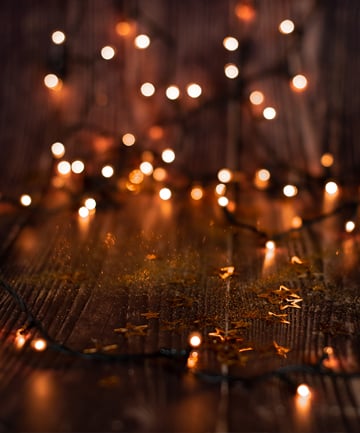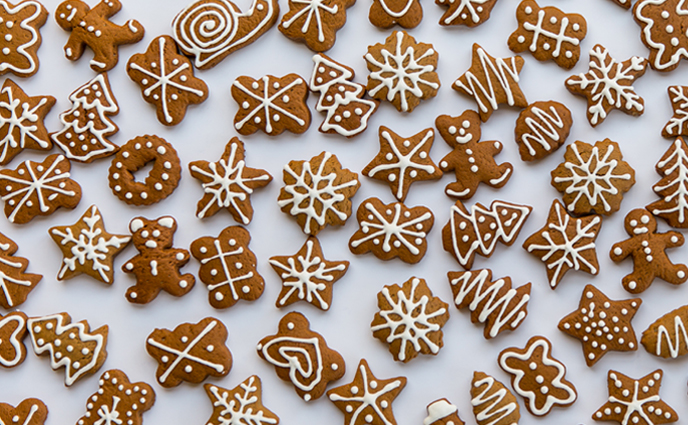This year really threw us into the deep end, didn't it? Perhaps the most glaring issue is that we're still contending with a scary and unpredictable pandemic that's entirely changed the way the holidays look. Some of us have even been impacted directly by this awful virus.
"This year has been a catastrophic one on a number of levels," says Dr. Cochran. "There are many individuals and families who have sustained horrible losses and are enduring ongoing, incredible pain. As a result, a lot of people don't feel much like celebrating the holidays, especially in the face of a seemingly unrelenting pandemic and all the confusion and uncertainty in the world today."
In addition to worrying about how we're going to celebrate — including whether we should spend in-person time with loved ones — this election cycle has been particularly fraught. Tensions are high, families are split, and many are simply feeling exhausted by it all.
Image via Catherine Delahaye/DigitalVision/Getty
Here's the thing: you are not alone in dealing with this unparalleled level of a complicated holiday season. We're collectively trying to get through it. To help curb your holiday-related stress and anxiety, adhere to the expert advice on the following pages.
Image via recep-bg/E+/Getty
"Try to remember to focus on the spirit of the holidays and control only what you can," says Judd. "There is no such thing as a 'perfect' holiday gathering."
Image via Elizabethsalleebauer/RooM/Getty
Being 'selfish' allows us to be selfless. "If you really take care of yourself and make sure your needs are met, then you will find that you have the desire and energy to love and support others," explains Dr. Cochran. "So, after you have taken really good care of yourself by eating well, exercising, making sure that you have sufficient sleep and topping it all off with a soupçon of pampering; find a way to give to family, strangers, animals, whomever."
Image via svetikd/E+/Getty
It's human nature to dwell on the negative. To avoid festering within an angry bubble, we have to work extra hard to find the good. Be intentional here. Judd recommends keeping a daily gratitude journal; you can also just speak these words out loud in the morning or evening as part of your daily ritual. Other ways to practice gratitude include stopping to look at a scene and observe what you like about it or going out of your way to tell someone you care about why you cherish them. It'll feel good — promise.
Image via Kseniya Ovchinnikova/Moment/Getty


